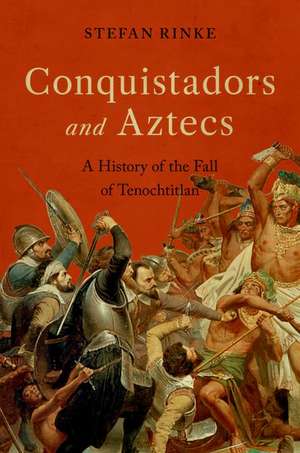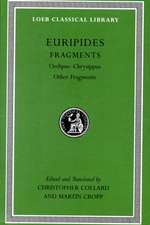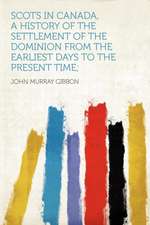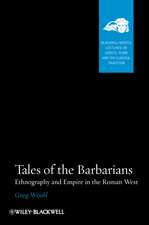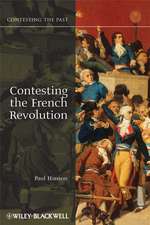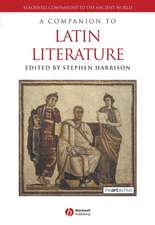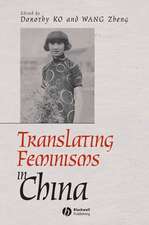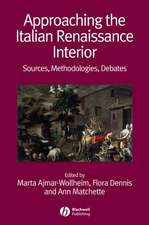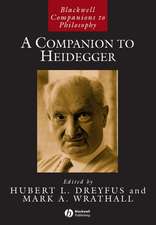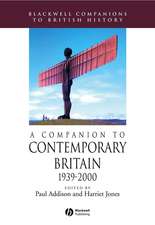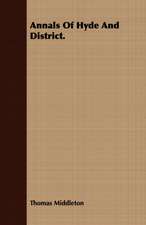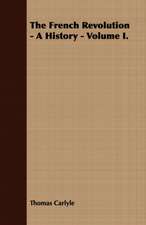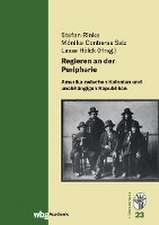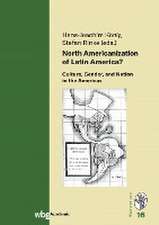Conquistadors and Aztecs: A History of the Fall of Tenochtitlan
Autor Stefan Rinkeen Limba Engleză Hardback – 13 iul 2023
Preț: 183.98 lei
Preț vechi: 209.86 lei
-12% Nou
Puncte Express: 276
Preț estimativ în valută:
35.21€ • 36.32$ • 29.38£
35.21€ • 36.32$ • 29.38£
Carte disponibilă
Livrare economică 22-28 februarie
Livrare express 19-25 februarie pentru 59.39 lei
Preluare comenzi: 021 569.72.76
Specificații
ISBN-13: 9780197552469
ISBN-10: 0197552463
Pagini: 328
Ilustrații: 38 halftones
Dimensiuni: 164 x 241 x 24 mm
Greutate: 0.61 kg
Editura: Oxford University Press
Colecția OUP USA
Locul publicării:New York, United States
ISBN-10: 0197552463
Pagini: 328
Ilustrații: 38 halftones
Dimensiuni: 164 x 241 x 24 mm
Greutate: 0.61 kg
Editura: Oxford University Press
Colecția OUP USA
Locul publicării:New York, United States
Recenzii
A riveting one-volume history of the 1519-21 Spanish Conquest of Mexico... Where the primary sources contradict one another (as they often do), Rinke explains and interprets the differences, instead of eliding complexity in favor of a contrived history. Although numerous historians have studied the downfall of the Aztec state, Rinke's monograph ranks among the best. VERDICT Enthusiastically recommended for students, scholars, and general readers seeking a thoughtful introduction to a complex and controversial historical moment.
Rinke's engaging new study is a significant contribution to the increasingly dynamic field of early Mexico's New Conquest History, adding much to the debate.
Stefan Rinke has written an accurate and well-documented retelling of the long known but ever-changing history of the conquest of Mexico. This book is one of the best recent historical narratives of the conquest written in any language, and a good introduction to the new and surprising interpretations of these events.
Detailed and narrative, focusing on the military conquest and cultural changes in Mesoamerica around 1520...By including methodological debates, recent research problems, and a broad range of Spanish primary sources, Rinke has created a highly recommendable introduction for students and scholars as well as a broader public.
Rinke's book... is brilliantly, even stirringly, written. He manages to present the characters as human beings, not just as actors populating contexts.
[Rinke] presents the motives, perspectives and backgrounds of the individual actors and clears up myths that are still entwined with the conquest of America. Rinke not only describes the conquests, but also explains who actually met there and what the starting situation was.
Rinke repeatedly points out the contingency of the process and thus reminds us that sometimes chance, topographical circumstances, or linguistic and cultural misunderstandings could be decisive. Overall, this richly detailed and highly readable book, which deals with an extremely exciting subject, should appeal to a wide audience and attract many readers.
Conquistadors and Aztecs covers well-known episodes with freshness and acuity: Moctezuma's puzzling decision to allow Cortés's army to enter Tenochtitlan; the ominous sight (and stench) of bloodstained Mexica priests; Cortés's up-and-down fortunes; Moctezuma's capture and death; Alvarado's point-of-no-return massacre of unarmed Mexica nobility at the festival of Toxcatl; the bleak Spanish retreat ("La Noche Triste"); their determined siege and re-entry; and the decimating effect of smallpox on the native population.
Historian Rinke revisits in this comprehensive and insightful chronicle the fall of Tenochtitlan and the Mexica (or Aztec) Empire in the early 16th century. Adding depth and nuance to historical accounts of a small band of conquistadors swiftly overcoming a massive empire through technological and tactical superiority, Rinke draws on Indigenous and Spanish sources to uncover a much more complex series of events...Rinke's prodigious research enables him to disentangle the biological, psychological, military, and sociocultural factors behind this much mythologized conquest. The result is a vital reconsideration of the history of the New World.
This book is a solid contribution to a topic that already has received significant interest. It recognizes the contribution of Indigenous peoples to the invasion and draws on some Indigenous sources while maintaining a generally European point of view.
Conquistadors and Aztecs relies on both written and pictorial sources written by European and Indigenous writers to provide a nuanced explanation for "the fall of Tenochtitlan."Conquistadors and Aztecs relies on both written and pictorial sources written by European and Indigenous writers to provide a nuanced explanation for "the fall of Tenochtitlan."
Rinke's engaging new study is a significant contribution to the increasingly dynamic field of early Mexico's New Conquest History, adding much to the debate.
Stefan Rinke has written an accurate and well-documented retelling of the long known but ever-changing history of the conquest of Mexico. This book is one of the best recent historical narratives of the conquest written in any language, and a good introduction to the new and surprising interpretations of these events.
Detailed and narrative, focusing on the military conquest and cultural changes in Mesoamerica around 1520...By including methodological debates, recent research problems, and a broad range of Spanish primary sources, Rinke has created a highly recommendable introduction for students and scholars as well as a broader public.
Rinke's book... is brilliantly, even stirringly, written. He manages to present the characters as human beings, not just as actors populating contexts.
[Rinke] presents the motives, perspectives and backgrounds of the individual actors and clears up myths that are still entwined with the conquest of America. Rinke not only describes the conquests, but also explains who actually met there and what the starting situation was.
Rinke repeatedly points out the contingency of the process and thus reminds us that sometimes chance, topographical circumstances, or linguistic and cultural misunderstandings could be decisive. Overall, this richly detailed and highly readable book, which deals with an extremely exciting subject, should appeal to a wide audience and attract many readers.
Conquistadors and Aztecs covers well-known episodes with freshness and acuity: Moctezuma's puzzling decision to allow Cortés's army to enter Tenochtitlan; the ominous sight (and stench) of bloodstained Mexica priests; Cortés's up-and-down fortunes; Moctezuma's capture and death; Alvarado's point-of-no-return massacre of unarmed Mexica nobility at the festival of Toxcatl; the bleak Spanish retreat ("La Noche Triste"); their determined siege and re-entry; and the decimating effect of smallpox on the native population.
Historian Rinke revisits in this comprehensive and insightful chronicle the fall of Tenochtitlan and the Mexica (or Aztec) Empire in the early 16th century. Adding depth and nuance to historical accounts of a small band of conquistadors swiftly overcoming a massive empire through technological and tactical superiority, Rinke draws on Indigenous and Spanish sources to uncover a much more complex series of events...Rinke's prodigious research enables him to disentangle the biological, psychological, military, and sociocultural factors behind this much mythologized conquest. The result is a vital reconsideration of the history of the New World.
This book is a solid contribution to a topic that already has received significant interest. It recognizes the contribution of Indigenous peoples to the invasion and draws on some Indigenous sources while maintaining a generally European point of view.
Conquistadors and Aztecs relies on both written and pictorial sources written by European and Indigenous writers to provide a nuanced explanation for "the fall of Tenochtitlan."Conquistadors and Aztecs relies on both written and pictorial sources written by European and Indigenous writers to provide a nuanced explanation for "the fall of Tenochtitlan."
Notă biografică
Stefan Rinke is professor and chair of the department of history at the Institute of Latin American Studies and member of the Friedrich Meinecke-Institut at Freie Universität Berlin. From 2014 to 2017 he was President of the European Association of Historians of Latin America. Rinke is the recipient of the José Antonio Alzate Award from the Mexican Academy of Sciences and is the author of fourteen books, most of which have been translated into Spanish, Portuguese, and English.
